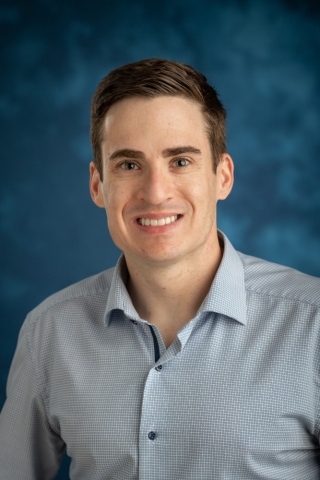
Date:
Location:
Speaker:
Abstract: The world is facing an increasing global energy demand, lack of clean water, and rising greenhouse gas emissions, all the while people strive to improve their standard of living. Computational modeling of catalysts, and making use of its synergy with experiments, aids the process to design catalytic systems to address these major societal challenges. Here I will discuss two on-going research efforts in our lab: (1) Understanding electrocatalysts for the conversion of aqueous nitrate, a pervasive water pollutant, to value-added chemicals, and (2) advancing data-driven approaches using machine learning to extract knowledge from catalyst data.
Nitrate ions (NO3−) are a highly distributed nitrogen source in industrial wastewater and polluted groundwater. Electrochemically converting nitrate ions into products such as ammonia (NH3) represents a route for wastewater remediation and distributed ammonia generation. Ammonia is a foundational compound for society because of its broad use in chemical synthesis and fertilizers. I will discuss our atomistic modeling (e.g., quantum mechanical modeling) efforts to understand and design catalysts for the electrocatalytic nitrate reduction reaction (NO3RR). Based on computational predictions, a series of platinum-ruthenium (PtxRuy/C) catalysts were synthesized, characterized, and tested, all of which show superior performance to Pt, one of the best pure metal electrocatalysts for nitrate reduction. These findings demonstrate how electrocatalyst performance is tunable by changing the adsorption strength of reacting species through alloying and provide guidelines to select alloy compositions for NO3RR catalysts.
Combining atomistic modeling with machine learning is a powerful approach to accelerate catalyst predictons. However, extracting meaningful physical insights from these machine learning models has often proven challenging. For the second half of my talk, I will discuss interpretable machine learning approaches that can overcome some of these challenges, with a case study highlighted. This case study demonstrates that interpretable machine learning can extract physical insights to aid understand of materials.
Bio: Bryan R. Goldsmith is an Assistant Professor of Chemical Engineering at the University of Michigan, Ann Arbor. He joined Michigan in 2017 after completing a Humboldt Postdoctoral Fellowship at the Fritz Haber Institute of the Max Planck Society in Berlin, Germany. He received his PhD in Chemical Engineering from the University of California Santa Barbara in 2015 from Baron Peter’s group. Goldsmith’s research lab specializes in atomistic modeling and machine learning to understand and design catalysts for chemical conversion, pollution reduction, and energy generation and storage. He serves on the early career editorial board of the Journal of Catalysis and the advisory board of Chem Catalysis. He has received multiple accolades for his research, teaching and service contributions, including the NSF CAREER Award, the AIChE 35 under 35 Award, the ACS OpenEye Outstanding Junior Faculty Award, and the Dow Corning Assistant Professorship.



